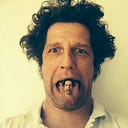Everything is true… until it is false.
LeLift Student Jeremy Van Diest asked me what I meant by that. Let’s see.
If you are into science, you probably are familiar with the concept of “levels of description”. It’s very simple: at some level of description, statements such as Newton’s laws of gravity are perfect to explain why objects seem to “fall”: they are attracted to the greatest mass around. But it turns out that Newton’s laws don’t work quite right to explain some phenomenon. Over 300 years later, Einstein realized the Newton’s laws were really just a simplification. They work fine at slow speeds on Earth, but fail when you take an object closer to the speed of light. So Newton’s law are true… or good enough in the context of Earth, but change the context and the laws are useless, irrelevant, false.
Same goes with Einstein’s theory of relativity: physicists are working hard to find under which conditions it becomes false.
The take away of all this is really an exercice in subtle thinking : understand that there is no truth, only points of view and contexts. consider the context’s parameters and the point of view’s level of description.
Context is as much about time as it is about space. For instance, the weather forecast. The closer the time distance, the more accurate, “true” is the weather forecast. Weather forecasting institutions are really good at telling us what’s the weather like now, but you’d better not rely on them for an accurate depiction of what the weather will be like in, say, three month’s time.
So there, don’t be so sure of anything really. Because it’s probably right, until it’s not anymore.
Context is everything.
So, that’s about it. Every statement is potentially true and false. Both states of truth coexist.
